Superior Durability & Structural Advantages of PVC Roofing Sheets
Tear Resistance in Extreme Industrial Conditions
PVC roofing sheets are renowned for their exceptional tear resistance, which is particularly advantageous in industrial settings that experience high stress from abrasive machinery and fluctuating weather conditions. The durability of PVC sheets has been affirmed by industry standards and testing results, proving their performance superior to traditional roofing materials under similar stresses. This resilience not only decreases maintenance costs but also enhances safety, significantly reducing risks for workers in industrial environments. The tear-resistant nature of PVC ensures longevity, offering businesses a reliable solution that withstands the rigors of demanding industrial scenarios.
Impact Resistance Against Heavy Machinery & Debris
The impact resistance characteristics of PVC roofing sheets make them incredibly beneficial in safeguarding against accidental impacts from heavy machinery and natural debris. This resilience is substantiated by real-life case studies, which have shown reduced damage instances with PVC roofing in various industrial locations. For example, in facilities where machinery often bumps into roofing during operations, PVC sheets remain unscathed, supporting continuous workflow without interruptions. Such durability extends the lifespan of roofing investments, minimizing the need for frequent replacements or repairs and thus providing a cost-effective solution for businesses that rely on dependable infrastructure.
Triple-Layer Plastic Roof Sheet Construction
The triple-layer construction of PVC roofing sheets presents substantial advantages in terms of structural integrity and insulation properties. This design enhances durability and longevity, making them a preferred choice in comparison to single-layer equivalents, as evidenced by manufacturers' data. The environmental benefits of PVC are noteworthy; its durable nature contributes to sustainable construction practices by reducing the need for frequent replacements. Additionally, the efficient insulation offered by the triple-layer structure supports energy conservation, aligning well with the goals of eco-friendly building practices and helping industries lower their carbon footprint.
Incorporating these features into construction not only ensures a robust building envelope but also supports the global shift towards sustainable and energy-efficient infrastructure solutions. PVC roofing stands out as a reliable option in an industry increasingly focused on balancing structural strength and environmental impact.
Chemical & Fire Resistance for Hazardous Environments
Protection Against Oil/Gas Byproducts & Acidic Exposure
PVC roofing sheets provide unparalleled chemical resistance, a crucial feature in environments affected by aggressive chemicals like oil and gas byproducts. These conditions often lead to rapid deterioration in other roofing materials, but PVC manages to maintain its integrity, providing enhanced safety and preventing leaks. Studies have demonstrated PVC's ability to withstand chemical exposure, positioning it as a superior choice for industries requiring durable chemical protection. As industry trends lean towards increased chemical resistance for safety in hazardous locations, PVC roofing is becoming the preferred solution for modern industrial applications.
Self-Extinguishing Fire Safety Properties
One of the standout properties of PVC roofing sheets is their self-extinguishing capability in fire-prone environments. This intrinsic fire resistance significantly enhances safety, as PVC is designed to halt combustion independently, minimizing risk in industrial and commercial settings. Statistics reveal that fire-related incidents can be drastically reduced with fire-resistant materials like PVC roofing. Notably, these sheets meet several certifications and building codes that underscore their fire safety integrity, making them an appealing choice for projects prioritizing fire risk mitigation.
PPGI Roofing Comparison for Chemical Plants
When PVC roofing sheets are used in chemical plants, they often outperform PPGI (Pre-Painted Galvanized Iron) in terms of longevity and corrosion resistance. While PPGI might initially seem viable, PVC's resilience ensures reduced maintenance costs and less frequent replacements. The data supports this, showing a notable difference in maintenance and replacement rates favoring PVC roofs, ultimately leading to cost efficiencies in similar environments. By investing in PVC, chemical plants capitalize on maximizing their safety and minimizing degradation from harsh industrial conditions.
Energy Efficiency & Thermal Performance
Solar Reflectivity in Green Wavy Roof Designs
The solar reflectivity of PVC roofing sheets plays a pivotal role in reducing energy consumption, thus promoting an eco-friendly environment. These reflective properties are particularly beneficial in urban areas where the 'green wavy' roof designs can significantly enhance energy efficiency in buildings. By reflecting a substantial portion of the sun's radiation, these roofs minimize heat absorption and reduce the reliance on air conditioning systems.
Studies show that reflective roofing materials can lead to potential energy savings by lowering cooling costs by up to 15% [According to the U.S. Department of Energy]. This makes the green wavy roof design not only aesthetically pleasing but also a smart choice for sustainable urban development.
Custom Plastic Roof Tile Insulation Benefits
Customized plastic roof tiles are engineered to offer superior insulation, improving thermal performance across various climates. Enhanced insulation leads to consistent temperature regulation within buildings, as supported by studies highlighting reduced energy costs. For instance, insulated roofing solutions can help decrease heating expenses during colder months and cooling costs when temperatures rise. The demand for customized solutions is steadily increasing in the construction sector, driven by the need for efficiency and energy savings. As builders and homeowners seek tailored roofing options to suit specific environmental conditions, the appeal of custom plastic roof tiles continues to grow.
Reducing HVAC Loads in Large-Scale Facilities
Implementing PVC roofing sheets in large-scale facilities can significantly decrease HVAC loads, translating into measurable cost savings. Facility managers have reported substantial energy reductions achieved through the superior design and performance of these roofing materials. In the climate-conscious construction landscape, intuitive designs that prioritize energy efficiency are crucial. PVC roofing sheets, with their ability to reduce thermal gain and maintain cooler indoor temperatures, contribute to this effort by significantly lowering the demands on heating, ventilation, and air conditioning systems. Transitioning to energy-efficient designs is vital as industries strive to balance cost savings with environmental responsibility.
Wind Uplift Resistance & Weatherproofing
Hurricane-Grade Seam Welding Technology
The implementation of hurricane-grade seam welding technology in PVC roofing sheets significantly enhances wind uplift resistance, offering robust durability during severe weather conditions. This technology employs high-frequency heat to create a seamless bond, making the seams exceptionally strong and less prone to leaks, similar to the advantages seen in **PVC roofing**'s general performance. By eliminating potential weak points, it ensures that roofs can withstand even hurricane-level winds, thus protecting property.
For example, buildings utilizing these welded seams have successfully endured extreme weather events without substantial damage, showing the practical efficacy of this approach. Investing in high-quality seams indeed prolongs the lifespan of roofing assets, ensuring long-term protection and reducing the need for frequent repairs.
Anti-Ponding Design for Monsoon Climates
PVC roofing sheets incorporate anti-ponding design features that prevent water accumulation, a critical benefit for regions experiencing heavy monsoon rains. These designs ensure proper drainage and minimize the risk of leaks or structural damage, as seen in industry examples where effective anti-ponding measures have maintained roof integrity during heavy rainfall. This technology combines strategically placed channels and slopes within the roofing structure, directing water flow away from vulnerable areas and into drainage systems.
Empirical data supports the effectiveness of these designs; studies show that roofs with proper drainage systems experience fewer issues like leaks or structural damage, contributing to improved weatherproofing capabilities.
Metal Profile Roof Tile Compatibility
PVC roofing sheets offer significant versatility in construction by being compatible with various metal profile roof tiles. This compatibility enhances building applications, allowing architects and builders to combine materials for tailored solutions. Many industry leaders have successfully integrated PVC sheets with **metal roofing**, showcasing installations that benefit from combined durability and aesthetic appeal. This flexibility in material selection can streamline project timelines, reduce costs related to material incompatibility, and ensure comprehensive roof performance across different environments. Whether for residential or commercial projects, the ability to seamlessly integrate PVC with metal profile roof tiles represents a major advancement in roofing solutions.
Cost-Effective Installation & Maintenance
Lightweight Handling for Retrofit Projects
The lightweight nature of PVC roofing sheets makes them exceptionally suitable for retrofit projects on existing buildings. This feature ensures that no additional structural stress is imposed on the building, making the installations seamless and quick. When examining performance metrics, it's clear that the lightweight nature of PVC helps reduce handling and installation time significantly during retrofitting. This advantage addresses common challenges in retrofit projects, such as structural weight capacity limitations and lengthy installation processes. PVC roofing, by being lightweight, simplifies the installation process, thus catering to both safety and efficiency needs.
20-Year Lifespan With Minimal Upkeep
PVC roofing sheets boast an impressive average lifespan of 20 years, which has been affirmed by industry studies. This longevity, coupled with their minimal upkeep requirements, translates into significant cost savings for building owners over time. Regular maintenance demands are usually minimal, giving way to reduced overall ownership costs. Testimonials from industry professionals often highlight the durability aspect of PVC sheets, noting their ability to withstand harsh weather conditions while maintaining structural integrity. This longevity not only reduces the frequency and cost of replacements but also adds value to any building project by ensuring sustained protection over the years.
Semi-Auto Production Line Quality Assurance
The semi-automated production line processes play a pivotal role in maintaining the consistent quality of PVC roofing sheets. By leveraging technology, manufacturers can ensure each sheet meets strict quality standards, thus ensuring product integrity. Studies indicate a strong correlation between production quality and the long-term durability of the roofing material. In effect, robust quality assurance programs contribute to reduced long-term costs associated with roofing maintenance and replacement. This efficiency not only enhances product reliability but ensures that customers receive a product that delivers value and reduces unforeseen expenses over its lifespan.








